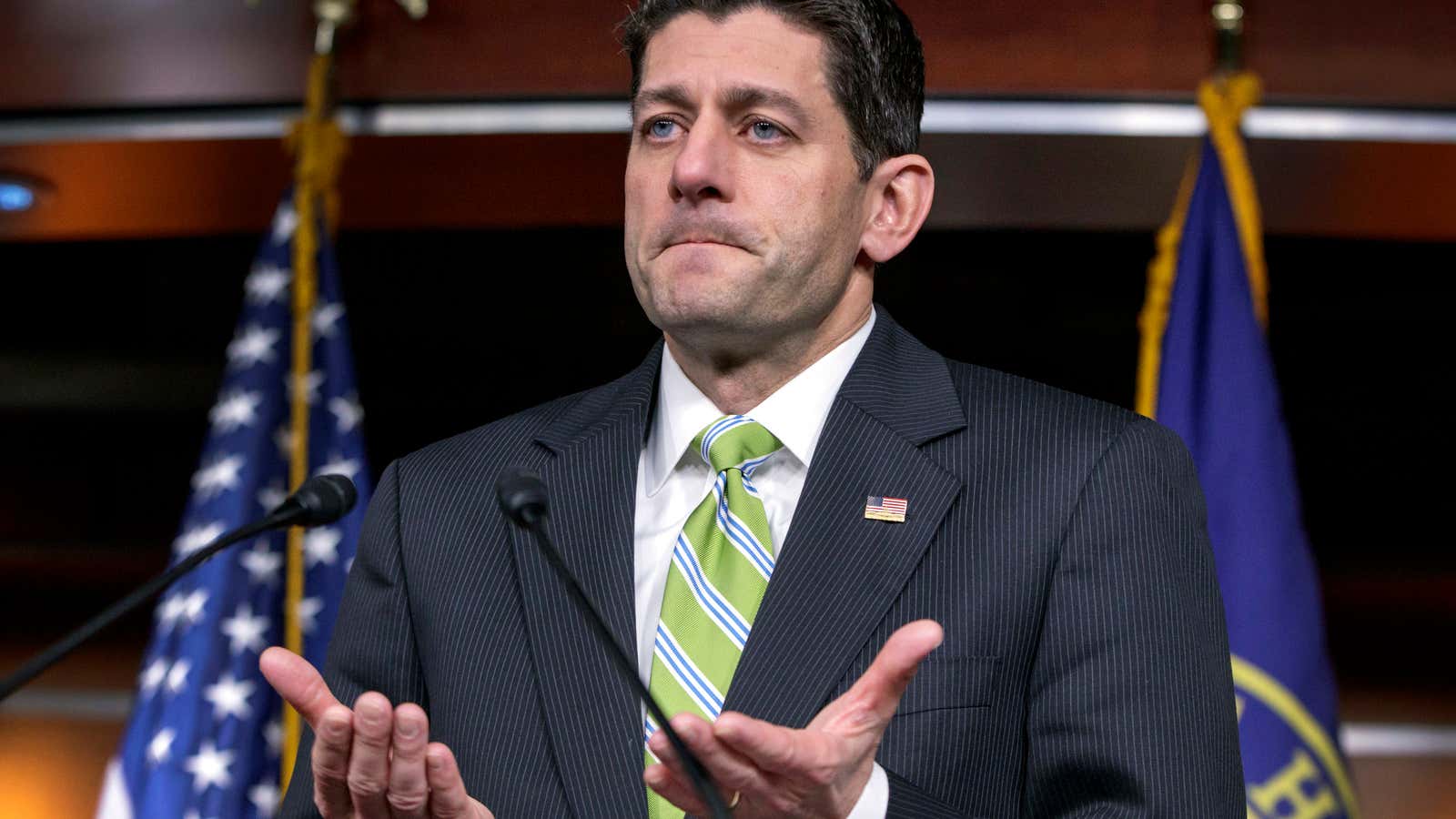The last time the Congressional Budget Office scored the Republican health care bill back in March, it forced lawmakers to make major changes in order to prevent millions of Americans from losing their health coverage and lower premiums for the elderly.
At least, that’s what House Republicans said they did, although they didn’t wait for an evaluation of the new bill before passing it on a party-line vote.
Now, the independent authority on economic policy has weighed in with a new score (pdf) of the bill known as the American Health Care Act (AHCA), and the results are…tepid.
The new version of the AHCA will now leave 23 million Americans without coverage by 2026, and healthy individuals will see their premiums rise by an average of 20% next year—a different but not much better result than the previous bill, which the CBO said would result in 24 million people losing coverage and 15% to 18% increases on individual policies next year.
The news is also likely to underscore efforts by senate Republicans to rewrite a more moderate version of the bill. A particular focus will be changes to the Medicaid program, which provides health coverage to poor Americans and their children, and which both the House bill and the president’s latest budget propose cutting by $800 billion.
Despite the relative unpopularity of these types of cuts, the new bill still serves its main political function, which is providing senate Republicans the opportunity to enact tax cuts targeted at the wealthiest Americans with a simple majority vote, instead of winning over any of their Democratic colleagues. According to the CBO score, the bill would cut the deficit by $119 billion over ten years, mostly due to the Medicaid cuts and a $276 billion reduction of subsidies for low-income Americans purchasing individual insurance. Meanwhile, effective tax cuts for medical companies and high-earning Americans amount to $664 billion.
On the all-important issue of the cost to consumers, the bill is still political dynamite in the short term. Insurance payments will increase significantly for the elderly under the new version of the bill, thanks to the removal of regulations designed to balance costs. In the long term, the CBO expects average premiums to fall by the end of the decade if states waive requirements for insurers. Waiving these requirements, however, will allow insurers to offer significantly less comprehensive plans that push more risk onto individuals.
For example, the report warns that the costs of specific services like maternity care, mental health, and substance abuse treatment will increase by thousands of dollars annually for users of those services. Call it a tax on birth, or on beating your opioid addiction.
Average premiums can be tough to understand, since health insurance depends on your age. But here are the net out-of-pocket premium payments expected in ten years if the law is enacted. Young people do see real cost reductions, since they need less care.
The first chart below shows how premiums will change for low-income Americans, according to the CBO. The elderly, especially on the low-income side, bear the costs of this change.
This second chart shows the political promise in not subsidizing coverage for the poor. The net costs for middle-income Americans fall significantly over the ten years, though the savings remain more significant for younger people who require less coverage.
The extended back and forth over the bill emphasizes the inherent tension faced by Republicans politicians, whose president has effectively promised universal coverage and no cuts to Medicare or Medicaid. It’s now pretty clear that any bill that reduces government intervention in the health sector is going to break those promises. This is also one reason why the hospitals, doctors, and nurses who aren’t exactly pleased with Obamacare have universally said this alternative isn’t going to solve their problems, either.
